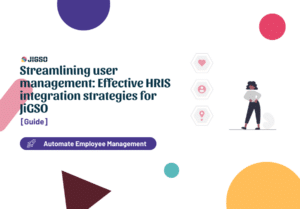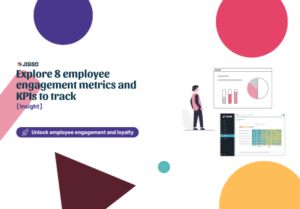1. Keep everyone informed
It sounds simple, but with a team that works flexibly in the office and at home, it’s important to keep everyone informed. Maintaining honesty between those who work in the office and those who work remotely means keeping everyone informed of opportunities or events in the company or even within the team. Therefore, organize regular stand-ups, so that everyone is back on board.
2. Encourage informal moments
Friendships often arise naturally in the office. It’s easier to strike up a conversation with the colleague sitting at the desk next to you or meeting at the coffee corner. But with teammates working from home all week, it can be harder to have those social interactions and build a bond.
Managers can encourage their teams to meet informally both virtually and physically. A good way is, for example, to schedule a FIKA break (weekly), or to agree to come to the office on the same day.
3. Take regular pulses of the teams
Stay informed about team cohesion and pscyhological safety in your teams by regularly asking how they are doing. Employees who feel they are being heard are four times more likely to do their best work. With JiGSO Listen, you can measure how your teams feel in terms of psychological safety, team cohesion, inclusion and you can even use your own questionnaires around various themes.
4. Celebrate successes
In order to maintain the motivation in an organisation, it is good not only to focus on points for improvement or future plans, but also to regularly reflect on what you achieve.
Celebrating successes also means supporting out-of-the-box thinking. You show appreciation for daredevils and initiators.
Important when celebrating successes is to discuss mistakes and also learn from them. If you want things to be like this in the organization, keep in mind that failure is allowed. Maybe it pays to have a “failure session“?
Examples of occasions that deserve a celebration: a cosy snack and drink after meeting a deadline, a homemade cake for a birthday. Relaxing in a team is also important.
Also, compliment each other regularly. You can even actively stimulate giving feedback by, for example, organizing a 360° feedback session.



